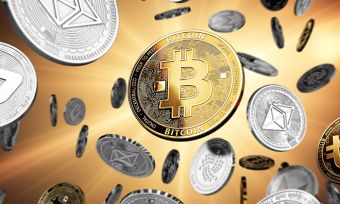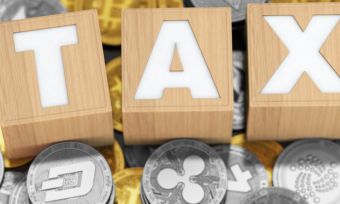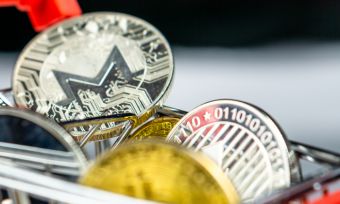Since 2021, Bitcoin’s price has peaked and troughed … and peaked again.
During the turbulent pandemic years, Bitcoin’s price soared to US$60k a couple of times, before it slumped back to around US$16k in 2023.
However this year, Bitcoin has enjoyed renewed attention, not least because of the US election. And Bitcoin’s price is now hovering around US$100k.
Yes, it’s a very risky, speculative asset, but it’s clear that it’s still a very popular one.
So what is a digital currency? What is Bitcoin? And how do you buy Bitcoin in New Zealand? To help you decipher the world of cryptocurrency, here is Canstar’s guide to buying, selling and using Bitcoin:
How to Buy Bitcoin in NZ. In this guide we cover:
- What is Bitcoin?
- How to buy Bitcoin in New Zealand
- Where to store your Bitcoin
- What can I buy with Bitcoin in NZ?
- Tax implications of buying Bitcoin
What is Bitcoin?
Bitcoin technology was first outlined in a scholarly article entitled: Bitcoin: A Peer-to-Peer Electronic Cash System, authored by a Japanese man called Satoshi Nakamoto in 2008. However the name is considered to be a pseudonym, and the true identity of the creator or team behind Bitcoin remains a mystery.
Bitcoin is a decentralised digital cryptocurrency based on blockchain technology. Blockchain is basically a foolproof digital ledger system that records information across many computers. Each entry, or block, has a coded timestamp that means records can’t be changed or tampered with. On an open peer-to-peer system, everybody has access to the records.
Bitcoin was born as an example of the application of blockchain technology. It was created to show how electronic transactions can be simple and secure outside of traditional global banking institutions.
Ultimately, each Bitcoin, or part of a Bitcoin, is just a digital code held on a central blockchain ledger. If you hold the key to that code, you “own” that Bitcoin. If you trade or spend your Bitcoin, that keycode will pass to somebody else, just like traditional currency.
Those who download the Bitcoin software and use their computers to timestamp, process and validate transactions are rewarded with Bitcoins. This process is called mining.

Because each Bitcoin transaction is made online over the peer-to-peer network, transfers of Bitcoins can be made instantly, and at a lower cost than traditional money-transfer methods. Currently, international money transfers come with relatively high fees and exchange rates.
But unlike traditional currencies that are controlled by central banks, Bitcoin is not regulated. Because of this, buying and selling Bitcoin online comes with inherent risks. Speculation is rife and its value can fluctuate wildly.
How to buy Bitcoin in New Zealand
If you want to invest in Bitcoin, there are hundreds of exchanges on the internet that allow you to buy and sell cryptocurrencies. Also, some big investment firms offer cryptocurrency index trading, meaning you can invest in an index across a range of cryptocurrencies, including Bitcoin, while not actually purchasing the cryptocurrencies themselves.
However, most online crypto exchanges don’t accept NZ$. If you want to use them to buy Bitcoin, you have to transfer money to your account using a credit or debit card, which comes with added charges. And these fees can stack up.
But there are a few exchanges that accept Kiwi dollars, although fees can still apply:
| Provider | Other Currencies |
| Easy Crypto | 200+ |
| Independent Reserve | 30 |
| Lightning Pay | Bitcoin only |
| Revolut | 175+ |
This information is not an endorsement by Canstar of cryptocurrency or any specific provider. Canstar is providing factual information supplied by providers. Cryptocurrencies are speculative, complex and involve significant risks. Canstar is not providing a recommendation for your individual circumstances or in relation to any particular product or provider.
The benefits of using Kiwi dollars to buy your Bitcoin include:
- Because you don’t have to factor in currency exchange rates, you can get a clearer picture of the price of your crypto trades.
- New Kiwi start-up Lightning Pay allows users to spend Bitcoin like regular NZ dollars at affiliated retailers.
- You’ll not be hit with excessive foreign exchange fees and credit card processing charges…
Beware excessive foreign exchange fees and credit card processing charges
When using a credit card to purchase Bitcoin, or other cryptocurrencies, on overseas exchanges you can expect to get hit with extra charges.
As a rule, standard trading fees are around 0.1%. But most exchanges charge additional credit card transaction fees: approx 2.5% to 3%. Plus, your credit card provider will take their cut in the form of a foreign exchange fee. In all, transaction fees can easily add up to 10% or more.
Even exchanges that accept NZ$ can charge fees, for example:
- Independent Reserve charges NZ$15 for deposits under NZ$5000, and NZ$20 for cash withdrawals
- Popular Aussie crypto exchange Swyftx accepts NZ$, but those funds land in your account in US$, and the company they use to handle the transaction takes a cut: a 1.99% fee and up to a 4% spread on the currency conversion.
Where to store your Bitcoin
If you want to invest in Bitcoin, you need a secure way of storing your assets. As Bitcoin isn’t regulated, it’s not a good idea to store your Bitcoin at an exchange if you are heavily invested. There have been many recorded cases of people losing their money to cyber crime and hacking. Here in NZ, over $23m of investors’ money was lost when the Cryptopia exchange was hacked.
So, generally, it’s recommended you store your Bitcoin in a digital wallet. There are a few options available on app stores for phones, as well as wallets for desk and laptop computers. They usually come with the added benefit of scannable QR codes, which remove the need to enter long wallet addresses with each transaction.
For an added layer of security, you could invest in a hardware wallet. These are storage devices, rather like USB sticks, that you can unplug from the internet and store in a safe place. As they are offline, they can’t be hacked and your valuable Bitcoin stolen.
Note that most crypto exchanges charge withdraw fees. So you’ll have to work out if using a digital wallet is worth the extra cost for your level of crypto investing.
→ Related article: Bitcoin & Crypto Wallets: Everything You Need to Know

Where can I spend my Bitcoin in New Zealand?
Online, there are plenty of retailers that accept Bitcoin. In Aotearoa, not so much. Coinmap features an interactive world map with a few Bitcoin-friendly NZ business. And, as we mention above, Lightning Pay is promoting the use of Bitcoin as a regular currency.
However, really, cryptocurrencies are about investing and speculating. Like stocks and shares, Bitcoin is bought, held, and sold as an investment, not commonly used as a currency to buy a coffee or pay for petrol.
Which brings us neatly to what our Financial Markets Authority has to say on the subject of cryptocurrencies and Bitcoin. For although the FMA doesn’t regulate crypto exchanges, it does offer some sage advice. Before you buy, make sure any New Zealand exchange you use is:
- Registered on the Financial Service Providers Register (FSPR)
- A member of a dispute resolution scheme
- Holds your New Zealand dollars in a trust account
And there are also tax implications…
Tax implications of buying Bitcoin in New Zealand
If you buy and sell cryptocurrency, regardless of whether you make a profit or a loss, there are important tax implications to consider.
In short, pretty much everybody who buys and sells cypto in NZ has to pay tax on any money they make. The Inland Revenue Department (IRD) breaks it down into three groups:
- People buying crypto with the intention to sell it
- Those buying crypto for a profit-making scheme
- Crypto traders
So, unless you’re buying crypto to actually use it as a currency and buy something (and, really, who does that, apart from people who need to pay some hacker’s ransom, or criminals on the dark web?), you must pay tax on any profits you make selling crypto.
Tax laws are not simple, but they are strict. If at the time of purchasing your crypto you have the intention of selling it at some point in the future, you need to include any profits you make at that point on your tax return.
So beware, it’s up to you to prove you never purchased the crypto as a speculative investment. As the IRD stipulates: “If you sell or exchange your cryptoassets for a profit and claim that you did not acquire them for the purpose of selling or exchanging them, you will need clear and compelling evidence to support your claim.”
→ Learn more: Cryptocurrencies: How are Crypto Assets Taxed in NZ?
Ultimately, the choice to buy Bitcoin is like any other investment: it pays to do your homework. And as a very volatile investment, and one that’s prone to hype and market bubbles, Bitcoin is never going to be a risk-free choice.
But at least if you go in with your eyes open, you can choose to invest with a reputable exchange and keep your investment safe from fraud or cyber crime.
About the author of this page
 Bruce Pitchers is Canstar NZ’s Content Manager. An experienced finance reporter, he has three decades’ experience as a journalist and has worked for major media companies in Australia, the UK and NZ, including ACP, Are Media, Bauer Media Group, Fairfax, Pacific Magazines, News Corp and TVNZ. As a freelancer, he has worked for The Australian Financial Review, the NZ Financial Markets Authority and major banks and investment companies on both sides of the Tasman.
Bruce Pitchers is Canstar NZ’s Content Manager. An experienced finance reporter, he has three decades’ experience as a journalist and has worked for major media companies in Australia, the UK and NZ, including ACP, Are Media, Bauer Media Group, Fairfax, Pacific Magazines, News Corp and TVNZ. As a freelancer, he has worked for The Australian Financial Review, the NZ Financial Markets Authority and major banks and investment companies on both sides of the Tasman.
In his role at Canstar, he has been a regular commentator in the NZ media, including on the Driven, Stuff and One Roof websites, the NZ Herald, Radio NZ, and Newstalk ZB.
Away from Canstar, Bruce creates puzzles for magazines and newspapers, including Woman’s Day and New Idea. He is also the co-author of the murder-mystery puzzle book 5 Minute Murder.




Share this article